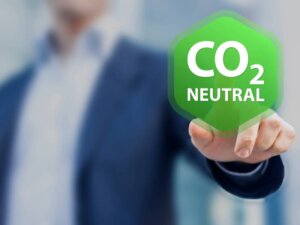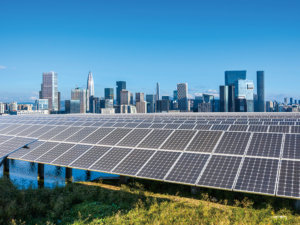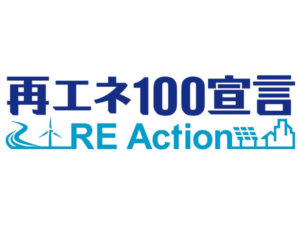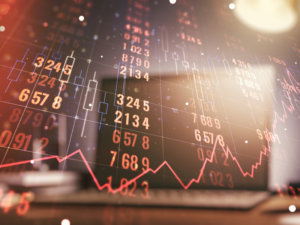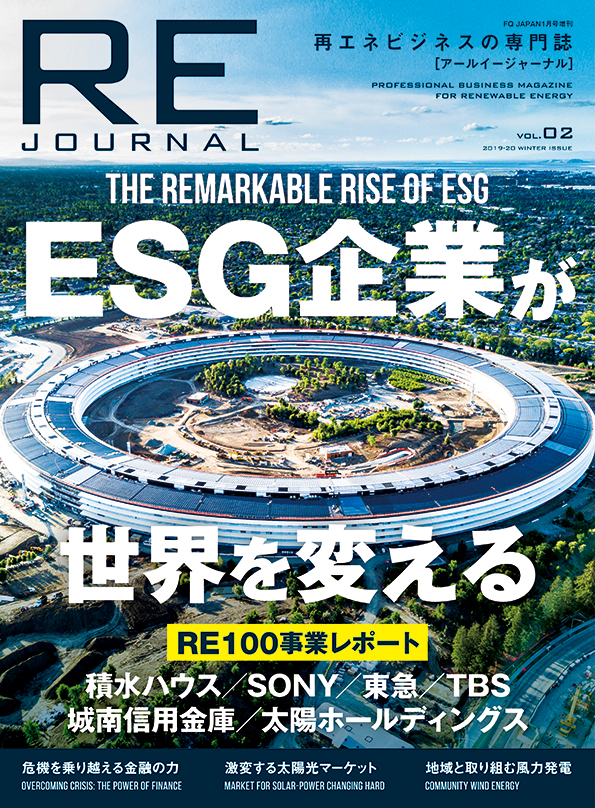世界で高まる脱炭素への動き。日本に求められることとは何だろうか。
2020/08/21
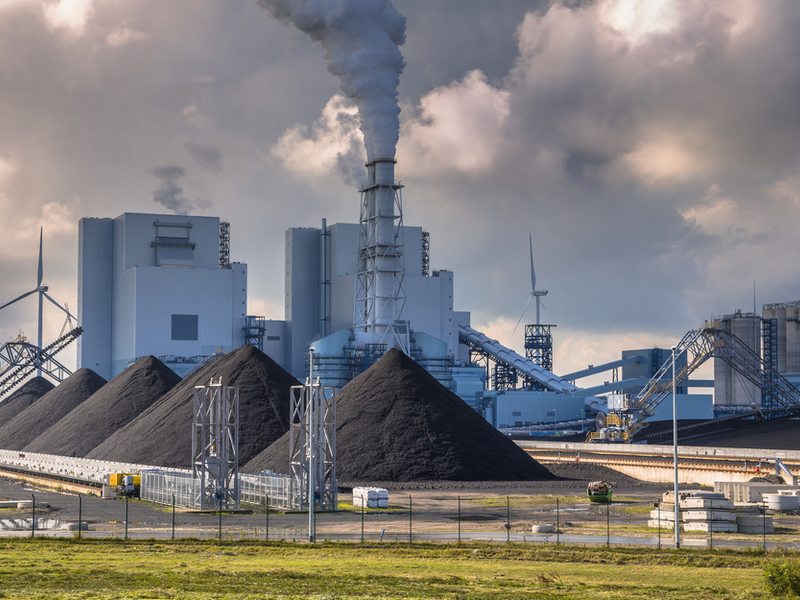
世界の大企業がRE100 やEP100 へ加盟し、“脱炭素社会実現”へ意欲を見せている。世界が脱炭素への動きを加速させる中、日本に求められることとは。RE100 を取りまとめる「We Mean Business」のナイジェル・トッピング氏に話を聞いた。
脱炭素社会の実現へ
世界で広がる取り組み
私は若い頃、20年にわたってラグビーをし、「100%コミットしなければ、負け、傷を負う」という教訓を学びました。この教訓は、世界経済やあらゆる国、あらゆる産業の競争力にも当てはまります。「ウィ・ミーン・ビジネス」は、時価総額20兆ドル(約2172兆円)を超える1000社以上の企業と連携するグローバルな非営利団体連合です。
この名称には「我々は真剣であり、コミットしている(=目標に対して責任を持って取り組んでいる)」、「我々はビジネスである」という2つの意味を込めました。いわば「コミットするビジネス」のムーブメントというわけです。
気候変動への企業の取り組みは、より高い志を政策に促します。そうすることで、企業は脱炭素化への投資に明確な見通しを得られます。企業の志と政策の志とが相互に作用するのです。
このような「志の循環」は世界中に広がってきています。すでに700社以上が二酸化炭素排出量についてSBT(科学的根拠に基づく目標)にコミットしているのです。さらに、その100社以上は2050年までのネットゼロ(二酸化炭素排出量を実質ゼロにすること)へも取り組んでいます。また欧州連合は、2050年までの気候中立(温室効果ガス排出量を実質ゼロにすること)に取り組んでいて、他の65ヶ国も同様に前向きな姿勢です。
脱炭素に向かう
世界の経済システム
世界の経済システムは脱炭素に向けて移行しています。例えば、世界最大の海運企業であるデンマークのマースクやトラックメーカーであるドイツのダイムラー、鉄鋼メーカーであるルクセンブルグのアルセロール・ミッタル、二大小売企業である米国のアマゾン・ドット・コムとウォルマートなど、様々な業種で多くの企業がネットゼロへコミットすべく動いています。
日本企業でも、小売企業のイオンや丸井や住宅総合メーカーの大和ハウス工業、自動車メーカーのトヨタ自動車、電機メーカーのソニーなど、100社以上が「ウィ・ミーン・ビジネス」で大胆な気候変動へのアクションを起こしています。
さらに富士フイルムやパナソニックら、日本に本社を置く29社を含め、世界で200社以上が、調達電力の100%再生可能エネルギー化を目標に掲げています。グーグルやアップルのように、日本で存在感を示している多国籍企業も、調達電力をすべて再生可能エネルギーにすると表明したことも記憶に新しいでしょう。
2018年11月、時価総額70兆円を超える90社以上の日本企業が、日本政府に対し、長期成長戦略で2050年までのネットゼロにコミットするよう求めましたが、日本政府はコミットしませんでした。これは、企業の脱炭素化への計画や投資、イノベーションに明確な見通しを与える機会を逸するものです。
座礁資産へ投資している?
日本も石炭の段階的廃止へ
日本の電力システムは変化していますが、より速く再生可能エネルギーへの転換をはかり、石炭火力発電を段階的に廃止するべきです。石炭火力発電の段階的廃止が必要であると明らかになっている現在、代替手段があるにもかかわらず、石炭火力発電所を建設しているのはG7参加国で日本だけです。つまり日本政府は税金を浪費し、座礁資産となるものに投資しているのです。
非営利シンクタンクのカーボントラッカーと非政府組織のCDPがまとめた報告書では、石炭火力発電の座礁資産リスクが710億ドル(約7兆7100億円)にのぼると予測されています。英国やドイツのように、日本も石炭火力発電の段階的な廃止について明確な期限を設定し、石炭への公的融資を止めるべきではないでしょうか。
日本の長期成長戦略は3つの「悪しき思考」に囚われています。そのひとつが、石炭に投資して二酸化炭素の回収や貯蔵のコストをさらに加えるという「悪しき経済的思考」。また、産業界の「悪しき戦略」もみられます。80年代、日本は生産方式を革新させ、欧米よりも20年進んでいました。しかし、今、変わらなければ、日本は欧米から20年の後れを取ることになる。最後に「悪しきモラル」もあります。日本政府は石炭に課税するどころか、投資さえしている。台風のような気候変動による自然災害に投資しているのと同義です。
競争力を維持し、投資を呼び込むためには、2020年の国別削減貢献案(NDCs)の見直しの機会を活かし、遅くとも2050年までのネットゼロに向けた明確な戦略を策定して国際的なリーダーシップを示すべきなのです。ラグビーの教訓を思い出してください。100%コミットしましょう。さもないと日本は世界に負けてしまいます。
脱炭素社会実現への
世界のトレンド
①気温の上昇に対する懸念
IPCC(気候変動に関する政府間パネル)が発表した特別報告書によると、1.0℃の気温上昇が経済的にマイナスの効果があるとされた。これを受け、気温上昇を抑えようとする潮流が一層強まっている。
②学生たちによる運動の大きな波
学生たちによる草の根運動が世界中で盛り上がりを見せている。Friday For Future など、若い世代の気候変動をはじめとして、若い世代の“環境問題意識” が活性化されている。
③革新的な技術開発
技術の開発で注目すべきはコストが下がりつつあること。特に蓄電池の低コスト化は顕著だ。コストが下がることで
導入が促され、再エネの競争力が勢いづいている。
We Mean Business は、企業や投資家の温暖化対策を推進している国際機関やシンクタンク等が運営しているプラットフォーム。構成機関にはCDPやThe Climate Groupが含まれ、E100やNET0(ネットゼロ)を取りまとめている。
Global shift to zero carbon Japan needs to be 100% committed
What should Japan do now while global leading companies join RE100 and/or EP100, accelerating the shift to the zero-carbon economy? Nigel Topping, CEO of We Mean Business, the global profit coalition who coordinates RE100, makes his recommendation on it.
Text: Yukiko Matsuoka
We Mean Business
CEO
Nigel Topping
The global movement to a zero-carbon economy When I was young, I played rugby for 20 years. One lesson I learned from rugby is that if you are not 100% committed, you will lose and you will get hurt. It is also applied to the economy and the competitiveness of whole industries and whole countries in the world. We Mean Business, a global nonprofit coalition, works with over 1000 companies, representing over $20 trillion of market capitalization. We Mean Business has two meaning in English: “We are serious and committed” and “we are business”. In other words, it is the movement of Committed Business. Corporate climate action helps drive stronger policy ambition, which in turn, gives businesses clarity to invest in their zero-carbon future. We call it the interplay between business ambition and policy ambition. Such ambition loops are more and more around the world. Nearly 700 companies have committed to Science-Based Targets (SBT). Over 100 of those have also committed to net-zero emissions by 2050. European Union has committed to a climate-neutral economy by 2050. 65 countries have done the same. All 94 affiliated cities of C40 Cities, including New York, London, and Tokyo, also have committed to net-zero by 2050. California has committed to net-zero by 2045.
Transition of the world’s economic systems to zero carbon
The world’s economic systems are in transition to zero carbon. Many companies in many sectors are committed to net zero, including Maersk, the world’s largest shipping company in Denmark, Daimler, the leading truck manufacturer in Germany, German cement manufacturer of HeidelbergCement, Indian cement manufacturer of Dalmia Cement, two of the world’s largest steel companies, ArcelorMittal in Luxemburg and ThyssenKrupp in Germany, two of the world’s biggest retailers, Amazon and Walmart in the United States, and Nestlé, the world’s biggest food company. More than 100 Japanese companies are also committed to bold climate action on our We Mean Business platform, including retail groups of Aeon and Marui, house builders of Daiwa House and Asahi-Kasei Homes, auto manufacturers of Toyota and Honda, and electronic groups of Hitachi and Sony. Over 80 Japan-headquartered companies have committed to Science-Based Targets (SBT). More than 200 companies in the world, including 26 Japan-headquartered companies, such as Fujifilm and Panasonic, have committed to source 100% renewable energy. Multinational companies, having big presence in Japan, like Google and Apple, are also expected to source 100% renewable energy. In November 2018, more than 90 Japanese companies, representing sales of over 70 trillion yen ($654 billion), called Japanese government t commit to net-zero domestic emission by 2050 in its long-term growth strategy. However, Japan did not commit to the level of ambition, which is the missed opportunity to provide businesses with the clarity they need to plan, invest, and innovate.
Japan needs to phase out coal without investing in stranded assets
Japanese power system is changing but needs to shift to renewable energy much faster and phase out coal. Japan is the only G7 country still building domestic coal at a time when we know it needs to be phased out and there are affordable alternatives. Japanese government is wasting taxpayers’ money, investing in what will become stranded assets. The recent report by Carbon Tracker and CDP estimates that the total risk of stranded assets is $71 billion. Japan should set a clear deadline to phase out coal power as the UK and Germany have done and stop public financing of coal internationally. The current Japanese long-term climate plan suffers from three types of bad thinking. Firstly, it suffers from bad economic thinking: investing coal, and then suggesting that adding the cost of the carbon capture and storage. Secondly, it suffers from a bad industrial strategy. In the 80s, Japan was 20 years ahead of the West, revolutionizing the way in manufacturing products. But now, if it misses to change itself, Japan will be 20 years behind the West. Finally, it suffers from bad morality. Instead of taxing coal, Japanese government is investing coal, which is like investing natural disasters caused by climate change, such as typhoons. To remain competitive and attracting investment, Japan must seize the opportunity of the Nationally Determined Contributions (NDCs) update cycle in 2020 to demonstrate global leadership by setting a clear strategy to net-zero emission by 2050 at the latest. Remember the lesson from rugby. You need to commit 100% or you lose.
PROFILE
非営利団体 We Mean Business
CEO
ナイジェル・トッピング氏

文/松岡由希子
RE JOURNAL vol.2(2019-20年冬号)より転載







